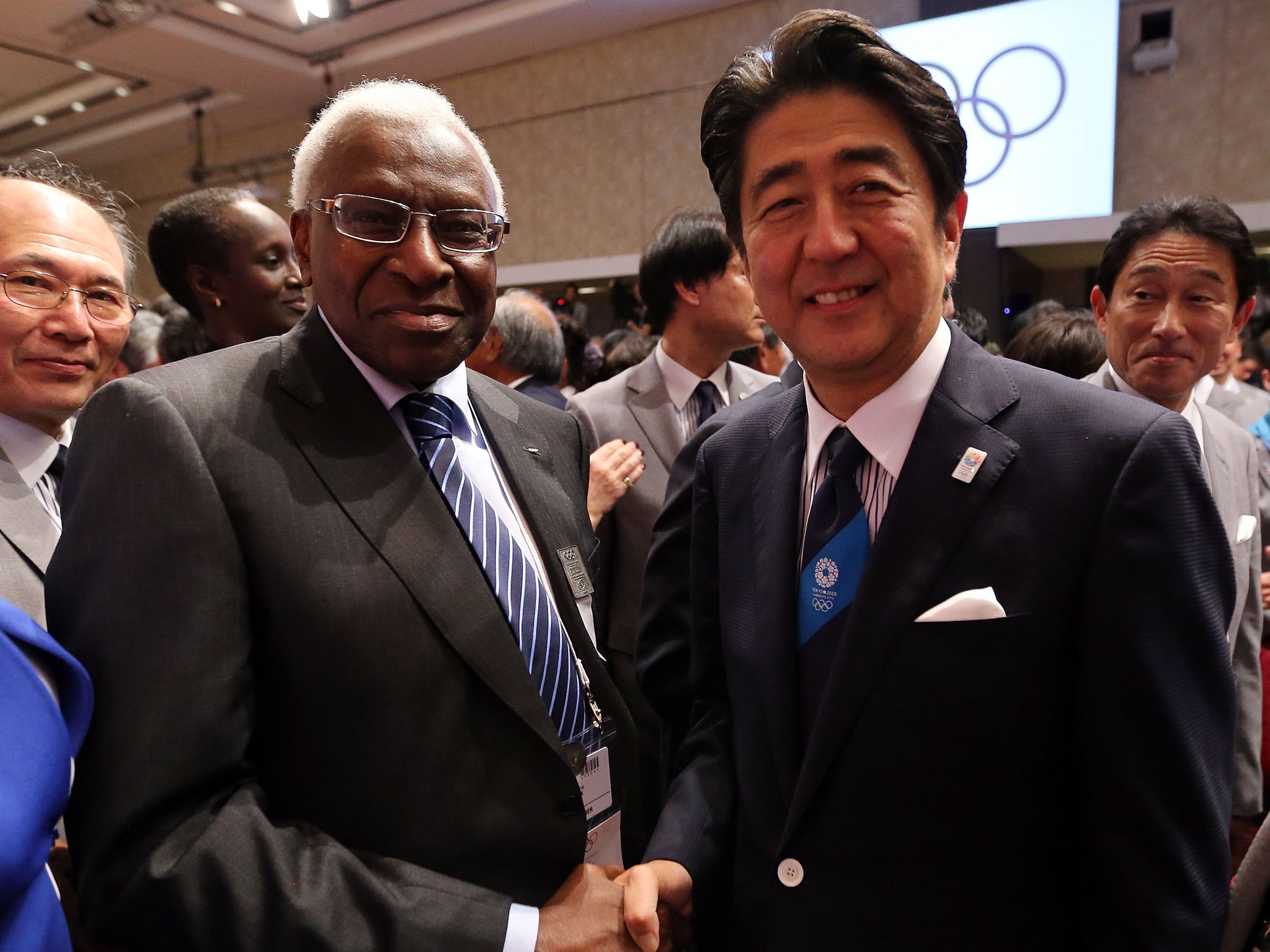Tokyo 2020 Olympics under scrutiny following report of 'questionable payment'
The claims come amid existing corruption investigation by French authorities

Your support helps us to tell the story
From reproductive rights to climate change to Big Tech, The Independent is on the ground when the story is developing. Whether it's investigating the financials of Elon Musk's pro-Trump PAC or producing our latest documentary, 'The A Word', which shines a light on the American women fighting for reproductive rights, we know how important it is to parse out the facts from the messaging.
At such a critical moment in US history, we need reporters on the ground. Your donation allows us to keep sending journalists to speak to both sides of the story.
The Independent is trusted by Americans across the entire political spectrum. And unlike many other quality news outlets, we choose not to lock Americans out of our reporting and analysis with paywalls. We believe quality journalism should be available to everyone, paid for by those who can afford it.
Your support makes all the difference.The Tokyo Olympic bid that won the city the 2020 Games faces scrutiny following allegations that they made a secret payment to a “notorious” account in 2013.
The payment, totaling €1.3m (£1.03m), was allegedly sent by the Tokyo bid - “or those acting on their behalf” - to the Black Tidings bank account based in Singapore, the Guardian says. Black Tidings is reportedly linked to Papa Massata Diack, the son of Lamine Diack, the former president of the International Association of Athletic Federations.
French prosecutors are working with the International Olympic Committee to investigate the allegations - widening an existing corruption, bribery, and money laundering investigation of the IAAF to the bidding for the 2016 and 2020 Games.
“The IOC’s chief ethics and compliance officer will continue to be in contact with all interested parties to clarify any alleged improper conduct,” a spokesperson for the IOC told the Guardian. “The IOC will not comment any further on the elements of the investigations at this stage.”
Papa Massata Diack was banned by the IAAF ethics commission following his allegations of his involvement in a cover-up in a Russian doping scandal. He worked for the IAAF as a marketing consultant.
Diack’s father - who served as president of the IAAF for 16 years before stepping down in August 2015 - admitted to soliciting €1.5m (£1.2m) from Russia to run a political campaign in his home country of Senegal in January.
French prosecutors suspect the senior Diack of accepting more than €1m from Russians in the doping scandal, as well.
According to the Guardian, the Tokyo bid first caught the attention of authorities in January after World Anti-Doping Association report included a footnote that included a transcript of a conversation between Khalil Diack and the officials representing the Istanbul bid team.
The transcript in the report suggested that the Tokyo bid team had made a “sponsorship” payment. The report suggested that Lamine dropped his support for Istanbul “because they did not pay”.
Spokesperson for Tokyo 2020 Hikariko Ono said that the footnote was “beyond our understanding”.
“The games were awarded to Tokyo because the city presented the best bid,” she said in a statement. “Tokyo's bid was about Japan's commitment to address issues around the integrity of sport.”
Join our commenting forum
Join thought-provoking conversations, follow other Independent readers and see their replies
Comments